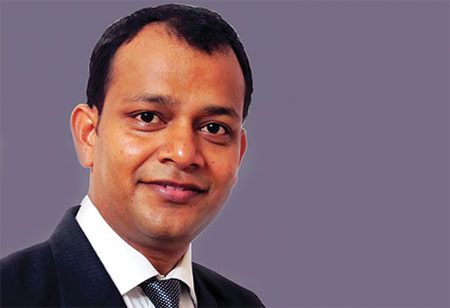Setting the Right Expectations
By Nirbhik Bera, Senior Director,

Nirbhik Bera, Senior Director,
A new idea or a need statement is often what a precursor to a project is. It is very important that the ‘need statement’ is clearly defined by the leadership as it helps in establishing the aspirations and objectives of the Project. This in turns allows the Project Manager to drive the site selection, identification of the right set of Consultants, the design and the level of detailing. Having come from an architectural design background, I understand the importance of the pre-construction Phase. As a project manager, one has to identify the stakeholders and engage them early on so that everyone is equally vested in the process and committed to taking the decisions they need to take in a timely fashion. Along with design, planning and budgeting are the other important aspects that get developed during this phase. Project Management for me is a lot about setting the right expectations on all these counts along with safety, quality and adherence to the project timelines during the Construction Phase.
With business models and legislations are evolving very fast, effective Project Management is the key to stay relevant. From the time a project is conceived to the time it is rolled out, often determines the success of the entire endeavor. Any delays and one would lose the edge to their competitors. Any cost escalations will make the efforts less effective. Failure to deliver on account of safety and quality can scar you forever.
Effective Project Management requires the project manager to align with the objectives of the project and the organization funding the project. Once the project manager is able to relate to both, the sense of ownership comes in and the individual is able to drive the project more effectively keeping everyone around him motivated. As you may have noticed in any team work, motivation tends to rub-off from one to the other rather quickly.
While a simple definition of a project manager would be someone who is responsible for spearheading the planning and execution of a given project, the expectations from a project manager vary and it depends on who you ask. Every stakeholder has a different set of expectations of what a project manager should do. In this complex scenario, being effective is the only way of staying relevant. Which brings me back to where we started, setting the right expectations. I enjoy working with the young minds and have spent a fair bit of time mentoring my friends and colleagues. As a Project Manager one must be convinced before trying to convince others and should abstain from falling into the trap of working towards what he or she does not believe in. One should not succumb to saying ‘yes’ today knowing fully well that the answer would be a ‘maybe’ or even a ‘no’. A project manager should learn to say ‘no’ when expectations are unrealistic but should be capable enough to explain the context and share alternate solutions to mitigate the risks. As a solution provider, a project manager has to identify and review risks on a periodic basis and chalk out alternate strategies. Raising a red flag on time is good, but nothing beats it when you have a solution or two to a problem you anticipate.
Having been part of the real estate industry in the United States and in India, what I often see is that the pain-points in the construction industry in India are often the same across cities; however as a part of the learning curve every organization goes through it and arrives at their own conclusions. Going through this learning curve can be painful; every organization should not have to go through it. I believe through knowledge sharing across an industry framework and effective guidance by professionals the often elusive parameters of cost and time can be made to be more predictable.
Project managers get to work on various assignments with different clients across industries. With each assignment you learn and carry that knowledge forward to the next. Each project throws at you unique challenges and with every assignment done, you come out that much wiser and sharper. Utilizing this knowledge in an effective way by collaborating with the design consultants, client and the contracting agency becomes an integral part of the responsibilities during the various phases of the project. The sustained effort leads to significant amounts of saving from the project budget
With so much at stake, finding the right project management consultant becomes the first step towards the success of your project. You need the right mix of knowledge and temperament; knowledge enough to guide the team and keep them focused and temperament of the kind that can handle the good days and the bad ones with equal ease.




